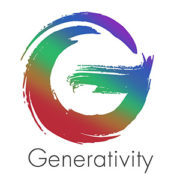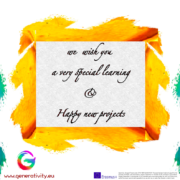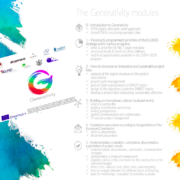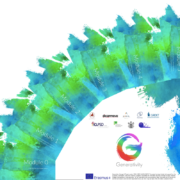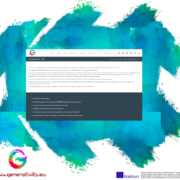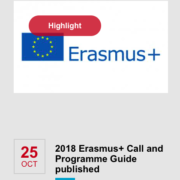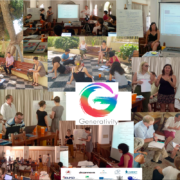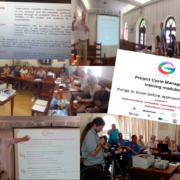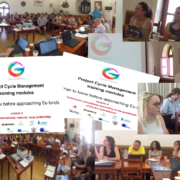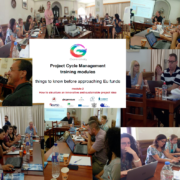All the staff and organizations of the Generativity project are proud to launch the online version of the he six training modules on Project Cycle Management in six languages: English, Italian, Polish, Greek, Dutch and French.
The modules cover all the fundamental issues to lead you through a learning path to Project Cycle Management.
These are the main topics:
module 0: introduction to generativity of new effective and sustainable project with the method of Project Cycle Management
module1: financial & programmatic priorities of the EU2020 strategy within various programs
module 2: how to structure an innovative and sustainable project idea
module 3: building an international, national, local partnership
module 4: submission procedures according to the guidelines of the European Commission
module 5: implementation, evaluation, valorization, dissemination, exploitation of project results
It was a great effort for us to implement the modules, and we are proud of the results which we achieved. In the next weeks we will finalize the modules in order for you to freely download them straight on your IT devices.
By offering them online, we take the opportunity to greatly thank all the professionals and the partner organizations that have worked on the implementation of the training modules for their great and valuable work of sharing their skills. A special thanks to the students of the University of Thessaly who tested our work.
Now it is your time: read the modules, and learn how to develop an effective and sustainable project!
To be informed on the forthcoming learning and training results of the Generativity project, please register on the “how to collaborate” link on the project website www.generativity.eu
